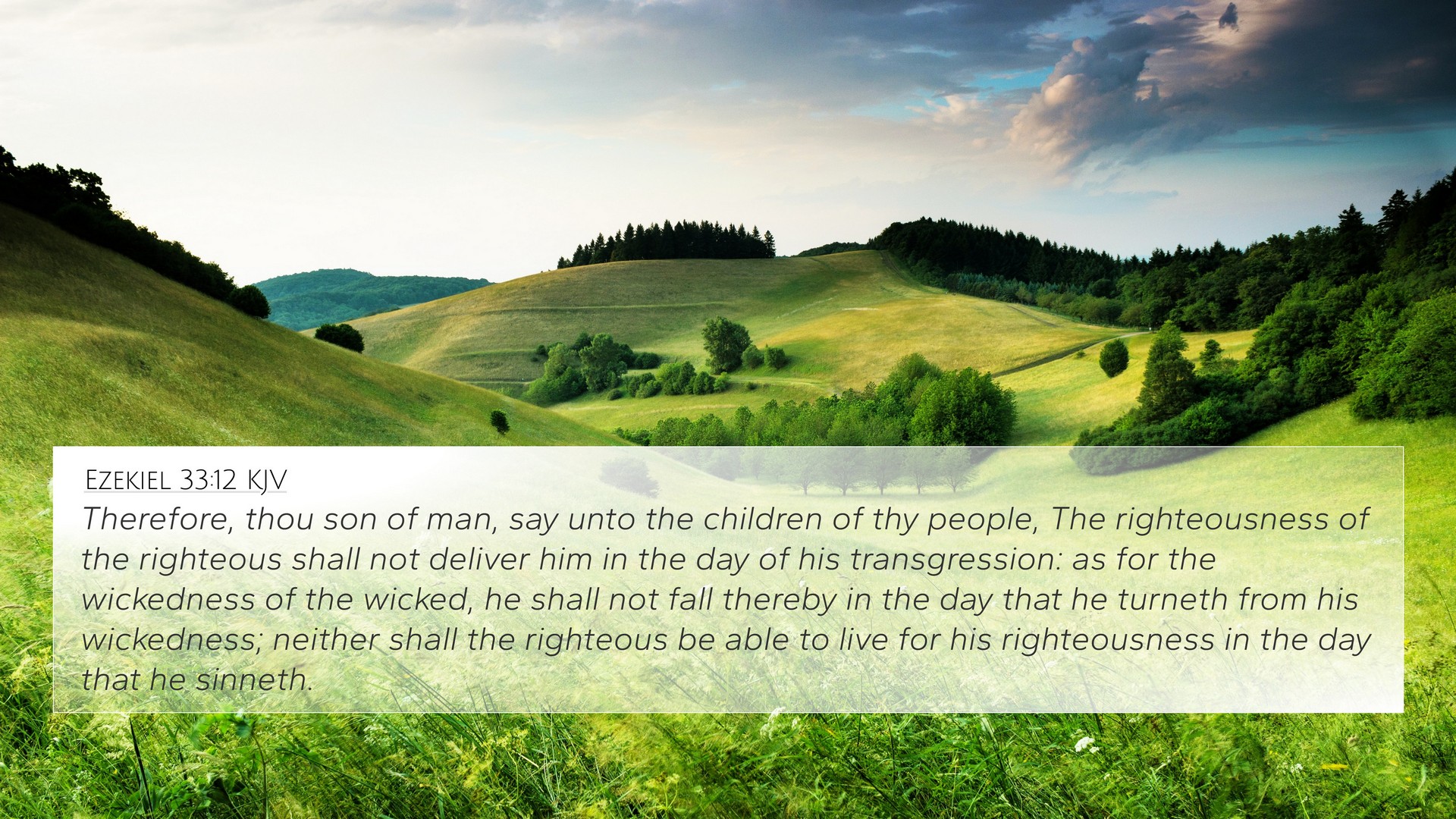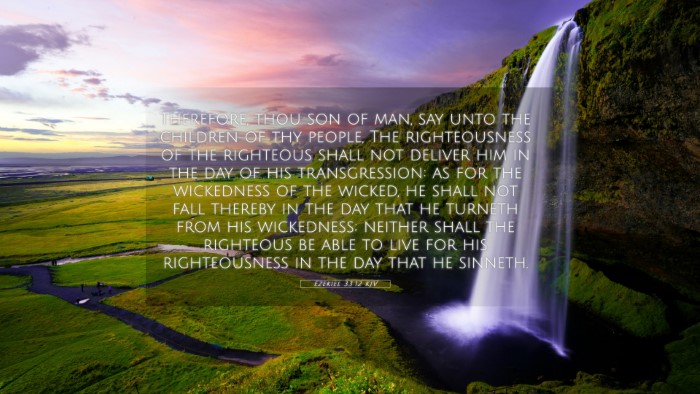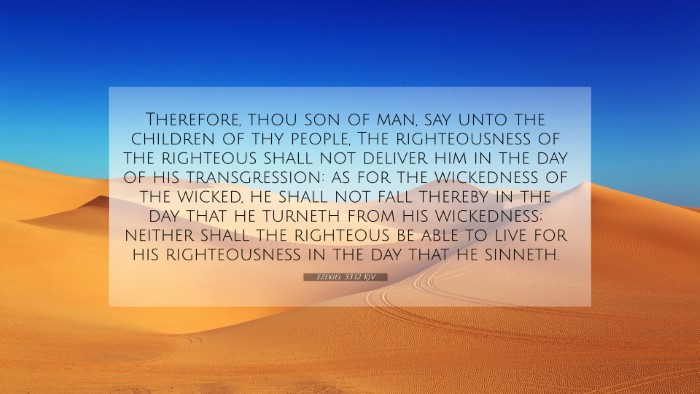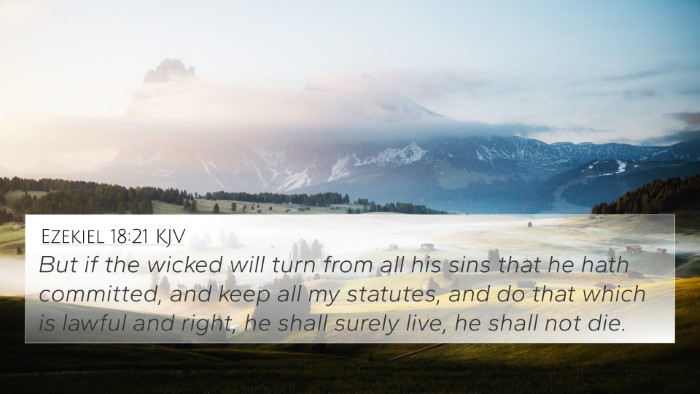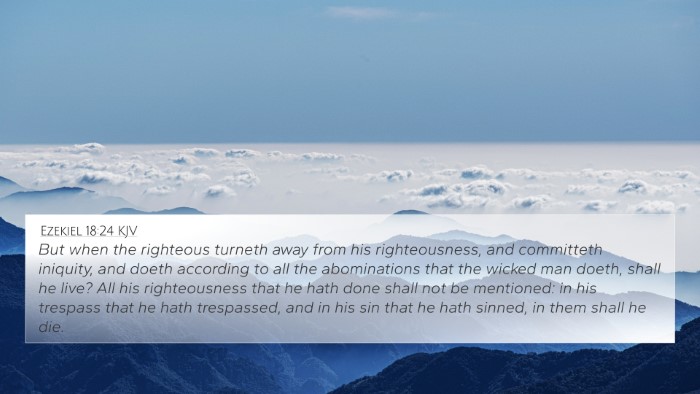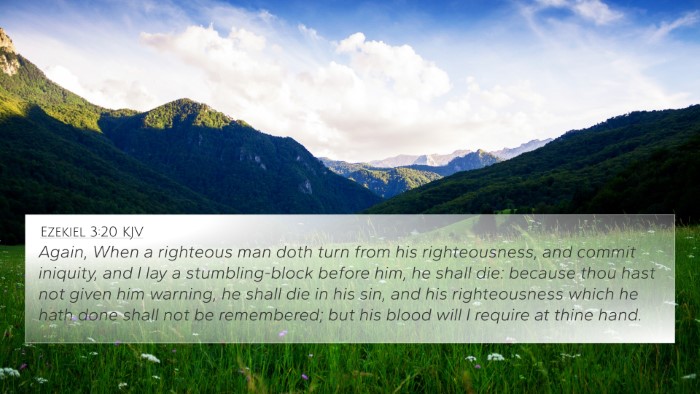Ezekiel 33:12 - Understanding the Verse
Verse: Ezekiel 33:12 - "Therefore, thou son of man, say unto the children of thy people, The righteousness of the righteous shall not deliver him in the day of his transgression: as for the wickedness of the wicked, he shall not fall thereby in the day that he turneth from his wickedness; neither shall the righteous be able to live for his righteousness in the day that he sinneth."
Summary of Meaning
This verse emphasizes personal accountability in the practice of righteousness and wickedness. Each individual is responsible for their own actions, and neither past righteousness nor wickedness can sever one's responsibility for their current state and actions before God. The focus here is on the importance of present choices and the consequences they bear.
Commentary Insights
Utilizing insights from public domain commentaries:
Matthew Henry's Commentary
- Henry explains that the righteousness of the righteous cannot deliver them if they turn from it.
- He highlights that the previous righteous deeds do not serve as protection against judgment in times of transgression.
- The commentary stresses that the real test is the integrity of one’s current moral standing.
Albert Barnes' Notes
- Barnes points out the justice of God, asserting that the righteousness of a previously righteous person does not shield them during a moment of sin.
- He elucidates that even for the wicked, their past wickedness does not impede the opportunity for redemption should they choose to turn away from their deeds.
- The emphasis is on the possibility of transformation and the necessity of repentance.
Adam Clarke's Commentary
- Clarke comments on the nature of God's judgment, stating that it is righteous and fair, leading every person to face the consequences of their actions.
- He reiterates that one cannot rely solely on past moral accomplishments but must continuously strive to live righteously.
- Clarke also indicates that this verse builds on the themes of accountability which are recurrent throughout the scriptures.
Cross-References to Ezekiel 33:12
- Jeremiah 31:30: Each person is accountable for their own iniquity.
- Ezekiel 18:24: The righteousness of the righteous will not save them if they turn from it.
- Ezekiel 18:30: A call for the people to turn from their offenses.
- Romans 14:12: Each of us will give an account to God for ourselves.
- Galatians 6:5: Each one should carry their own load, emphasizing individual responsibility.
- Matthew 7:21: Not everyone who claims to be righteous will enter the Kingdom of Heaven.
- 2 Peter 3:9: God is patient, not wanting anyone to perish but all to come to repentance.
Connecting Themes and Verse Analysis
The exploration of Ezekiel 33:12 can lead to various thematic connections within the Bible:
- Thematic Bible Verse Connections: The themes of accountability and repentance echo throughout both the Old and New Testaments.
- Bible Verses that Relate: Verses such as Matthew 3:8 and Luke 13:3 align with the necessity of bearing fruit in keeping with repentance.
- Bible Concordance Insights: Using a concordance aids in locating verses that discuss righteousness and judgment.
Tools for Cross-Referencing
To delve deeper into the connections between scriptures regarding accountability, here are useful tools:
- Bible Concordance: A comprehensive resource to track themes and verses.
- Bible Cross-reference Guide: Effective for identifying related teachings across the scriptures.
- Bible Reference Resources: Helpful for sermon preparation and in-depth study.
Conclusion
Ultimately, Ezekiel 33:12 highlights the gravity of individual choice in one’s spiritual life. We must remain faithful in our actions, acknowledging that both righteousness and wickedness require ongoing diligence and commitment. This verse invites believers to consider the continuous nature of their relationship with God and to actively participate in their moral journey.
Related Keywords:
- Bible verse cross-references
- Connections between Bible verses
- Linking Bible scriptures
- Comparative Bible verse analysis
- Cross-referencing Biblical texts
- Thematic Bible verse connections
- Bible verse parallels
- Scriptural cross-referencing
- Inter-Biblical dialogue
